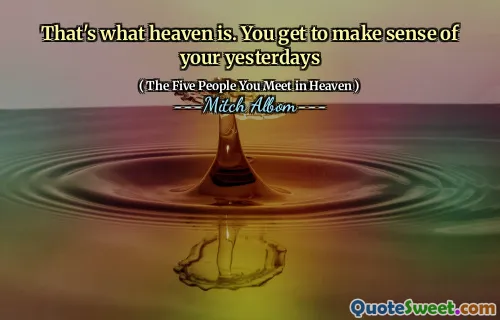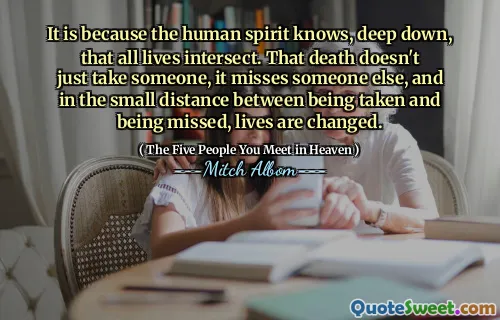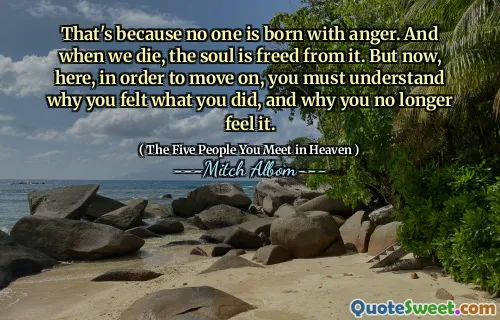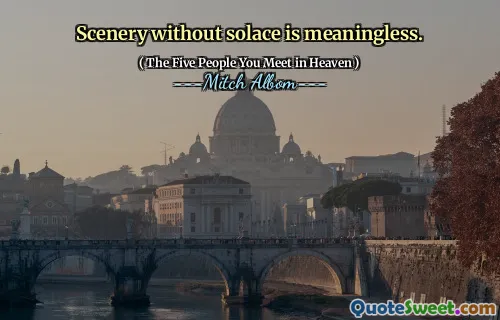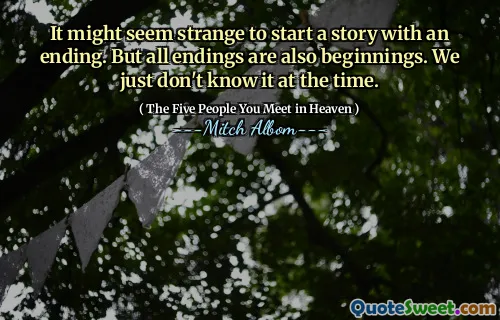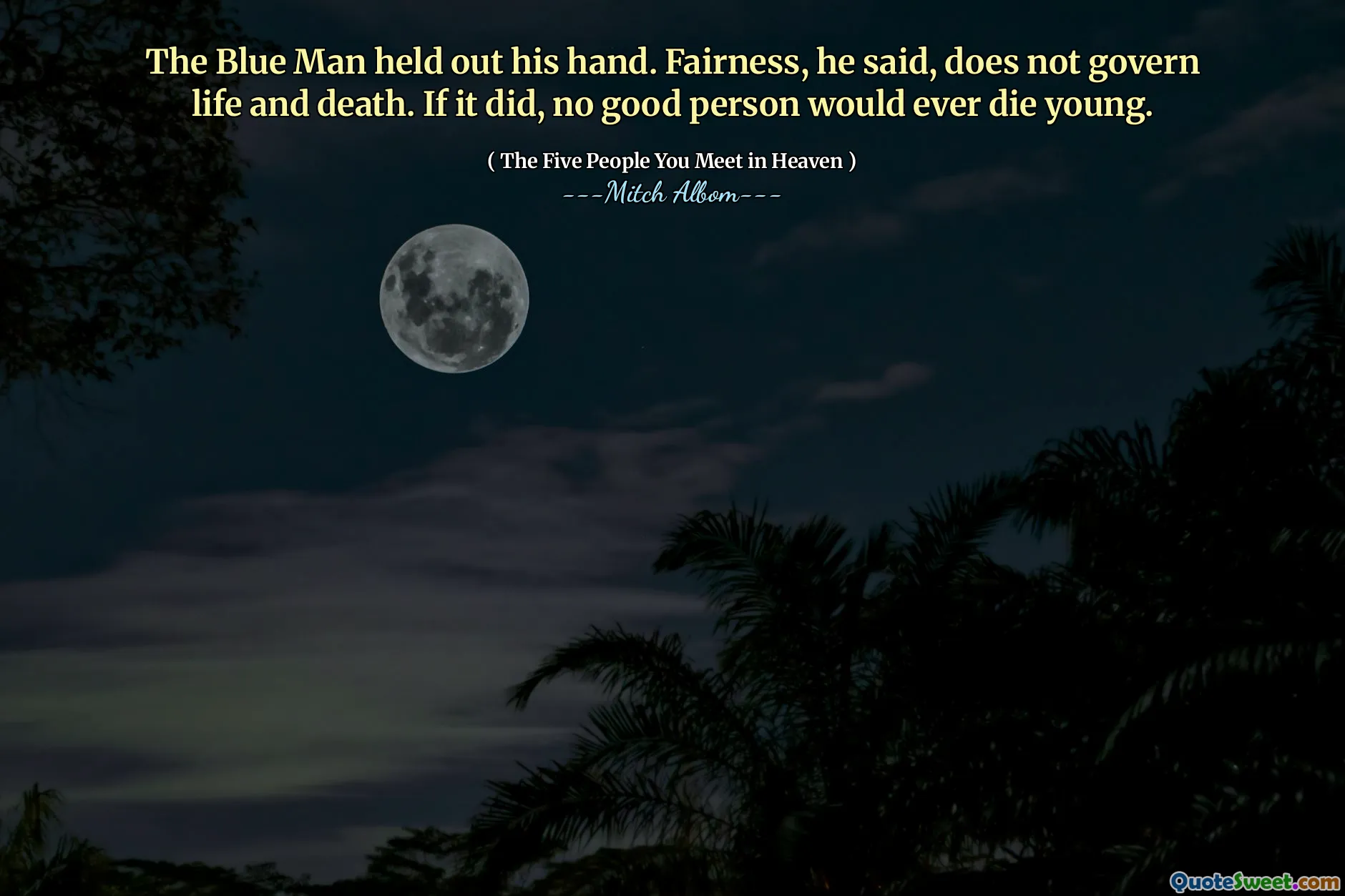
The Blue Man held out his hand. Fairness, he said, does not govern life and death. If it did, no good person would ever die young.
In Mitch Albom's "The Five People You Meet in Heaven," the Blue Man expresses a profound truth about the unpredictability of life. He argues that fairness is not the ultimate principle that governs our existence, particularly when it comes to the mortality of individuals. This statement challenges the notion that good deeds should guarantee a long life, emphasizing that fate often operates beyond our understanding of justice or fairness.
This insight serves as a poignant reminder that life is inherently complex and not framed by a simple equation of merit and reward. The Blue Man's words suggest that suffering and loss are universal experiences that do not discriminate based on one’s character or morality. Ultimately, Albom's narrative invites readers to reflect on the deeper meanings behind life and death, suggesting there is more to our journeys than mere fairness.
